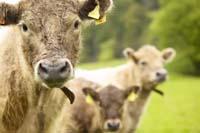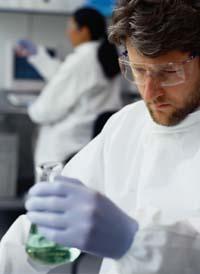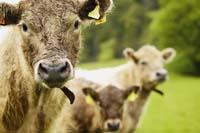Cloned cattle on a plate
2008/02/23 Galarraga Aiestaran, Ana - Elhuyar Zientzia

To reach this conclusion, they have been investigating for a long time. The FDA, a U.S. food and drug safety agency, passed its sentence last year, but before that it spent four years studying meat, milk and products made from cows, sheep and cloned goats. However, he asked companies that raise this type of animal that do not yet market these products. Apparently, a contrary position was envisaged for consumers and, in addition, more evidence was wanted.
Since then, studies have continued, and the sentence of last year has recently been ratified. That is, they have come to the conclusion that it does not mean any harm to people. And the same has been said by EFSA, the European organization responsible for food security.
However, the declaration of the EFSA is not definitive. The report was published last December and, until February 25, can be consulted. Taking into account the opinions received and the results of the investigations carried out during the period, the final report will be published in April or May.
The EFSA report indicates that the clones of cattle and pigs, as well as their descendants, have been investigated. In particular, the components and nutritional characteristics of meat and milk, the possibility of new ingredients, the health status of the animal, the risk of allergies and microbiological data have been analyzed.
According to the results, the meat and milk of clones and their descendants do not differ from the most common animal. On the other hand, clones with health problems are discarded from the food chain, as is the case with other animals, so they do not pose special problems. In the generation and toxicity of allergies are no more dangerous than others.
In the EFSA report, it is also explained that cloned animals have analyzed their possible involvement with biodiversity. In fact, clones have the same genetic information as another animal and, if many clones are generated, the population becomes more and more homogeneous. This increases the risk of infections and health problems. However, the report points out that in this regard cloning is no more harmful than other assisted reproduction techniques.
Other opinions opinions Other opinions

However, not all agree with the provisions of the report. At the moment it seems that consumers do not see with good eyes the possibility of marketing this type of food. In Europe it has only been surveyed in a country, Italy, and more than half of the population has been shown against it.
Not only citizens, but experts in ethics have doubts. In January, the CSR, the team responsible for the ethics of science and new technologies, presented its opinion on this subject. The CES considers that the pain and health problems suffered by cloned animals make it not ethical to clone and raise animals to produce food for humans.
Animals created by cloning have many more health problems than others. In the same report published by EFSA it is recognized that the cows and sows to which cloned cattle are applied in the uterus have more abortions than usual. In addition, many of the offspring born have cerebral edema and other anomalies. On the other hand, clones are usually larger than normal, so it is often necessary to perform a C-section, which also poses a risk to the mother.
Aware of all this, the CSR do not consider that there is reason to clone the herds to eat. Yes, if one day it was for the market, they ask that the label appear clearly that they are clones. In addition, they have demanded a greater concern for biodiversity from the European Union. And they ask him to do more analysis and collecting opinions. This request will be met shortly, since the Eurobarometer of the European Union is preparing a consultation on this subject.
Although experts say that clone meat and milk are like that of others, many believe that they will not succeed in the market. Aside from health and safety, other factors also influence sales, among which the price stands out. In fact, cloning is an expensive technique and few cloned animals advance. This makes the products made with them even more expensive.
However, companies dedicated to the breeding of cloned animals have a great interest in having a marketing authorization of their products. For example, some American companies have recognized that they have sold the seed of cloned bulls, but, in some way, this activity is now illegalized, since it is not allowed (or prohibited) anywhere. Therefore, they ask the law to come out as soon as possible.
It is also beneficial for consumers the existence of clear standards and controlled and well-labeled marketing of all food. From there, the purchase will be in the hands of each one.
Published in Gara

Gai honi buruzko eduki gehiago
Elhuyarrek garatutako teknologia





